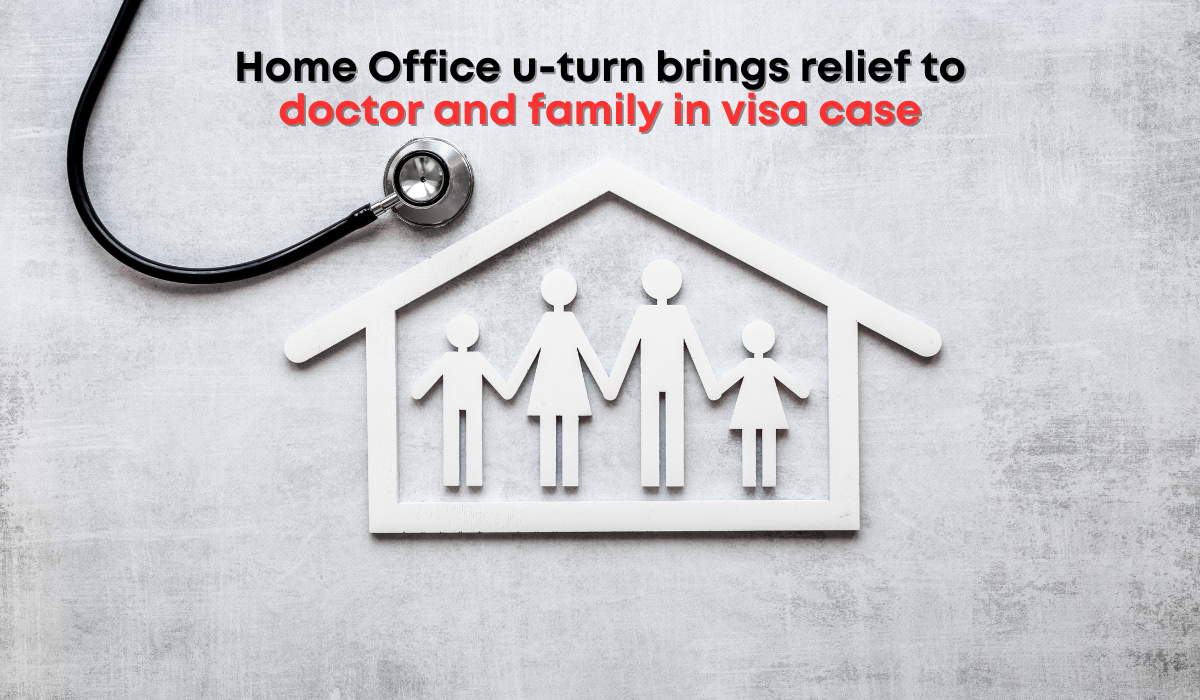A recent Home Office U-turn in the case of Dr Tajwer Siddiqui, a Pakistani GP working in London, highlights the often complex and distressing challenges families face when handling the UK’s immigration system. Dr Siddiqui, who feared being separated from his autistic daughter due to a visa refusal, has successfully had the decision reconsidered, allowing his family to stay together in the UK.
Background of the Case
Dr Siddiqui, 59, and his wife Shehlar Tajwer, 50, had initially been granted visas to relocate to the UK. However, their 19-year-old daughter Alina, who has autism and cannot live independently, had her visa refused. The Home Office argued that her parents had not demonstrated “compassionate or compelling circumstances” to justify granting her visa and claimed that the consequences of separation from her family did not meet the threshold of “unjustifiably harsh consequences.”
This refusal put Dr Siddiqui, a highly skilled medical professional, in an impossible situation. On one hand, he had secured a position at an NHS GP surgery in Ilford, east London, where he was preparing to take his Professional Linguistics Assessment Board (PLAB) exam to fully qualify as a practising doctor in the UK. On the other hand, the visa denial threatened to separate him and his wife from their vulnerable daughter, who relies on them for care and support.
A Reconsideration and a Victory for Compassion
Following the media coverage of the case, particularly through The Guardian’s reporting, the Home Office re-evaluated the situation. In a statement following the article’s publication, a Home Office spokesperson confirmed that the department had reconsidered its decision, offering an apology for the inconvenience caused to the family and stating that they would be in contact regarding the next steps.
The family’s relief was palpable. Dr Siddiqui expressed his overwhelming joy at the reversal of the decision. The ordeal had been emotionally taxing, especially since they hadn’t informed their daughter of the initial refusal. Dr Siddiqui emphasised how reliant Alina is on her parents, both for daily care and emotional support.
The Impact on the UK’s Healthcare System
The case highlights broader issues concerning the immigration system’s impact on skilled workers, particularly those in essential sectors like healthcare. Dr Siddiqui, who has decades of experience working in medicine in Pakistan and Saudi Arabia, secured a visa to work in the UK’s National Health Service (NHS) as part of the Skilled Worker route. His presence in the NHS has already been highly valued, with his contributions at Doctor’s House surgery in Ilford being described as significant by the practice’s business manager, Ikram Khan.
For the NHS, which continues to face staffing shortages, attracting international professionals like Dr. Siddiqui is crucial. Denying visas to close family members of such professionals risks deterring highly qualified candidates from working in the UK, especially those who are responsible for vulnerable dependents. The bureaucratic hurdles and emotional strain can become overwhelming, making skilled workers less likely to remain in or relocate to the UK.
Lessons Learned and the Need for Compassionate Immigration Policy
While the Home Office’s eventual decision to grant Alina a visa is a positive outcome, the case raises questions about the initial refusal and the rigidity of immigration rules. Dr Siddiqui’s case demonstrates the importance of taking into account the family unit’s well-being, particularly when dependents with special needs are involved. Immigration policies that fail to consider these factors risk causing emotional trauma and disrupting the lives of families who contribute significantly to British society.
For many families, the UK’s immigration system can feel cold and uncompromising. The refusal of Alina’s visa based on her age, despite her inability to live independently due to her autism, exposes the lack of flexibility in the decision-making process. The Home Office initially claimed that her situation did not meet the “compassionate and compelling grounds” requirement, yet the eventual reversal of this decision suggests that more emphasis should be placed on ensuring that family separation does not occur when it would lead to unjustifiable hardship.
The Road Ahead for the Siddiqui Family
With this U-turn, Dr Siddiqui can continue his career in the NHS, and the family can remain together as they settle into their new life in the UK. Alina’s future, now assured alongside her parents, offers hope for other families facing similar struggles. However, the broader issue of ensuring the immigration system is fair and compassionate remains pressing. This case highlights the need for ongoing reform to ensure that families, particularly those involving dependents with special needs, are not left in limbo due to rigid and outdated visa policies.
In a post-Brexit UK, where skilled migration is essential for economic growth and the sustainability of public services like the NHS, it is crucial that the immigration system evolves to meet the needs of modern families and workers. The case of Dr Siddiqui and his family serves as a reminder that while rules and regulations are necessary, they must be applied with a human touch, ensuring that the wellbeing of individuals and families is at the forefront of decision-making processes.
For the Siddiqui family, the future in the UK is now a little brighter, and their experience should serve as a catalyst for broader changes in how we approach immigration cases involving vulnerable dependents.


